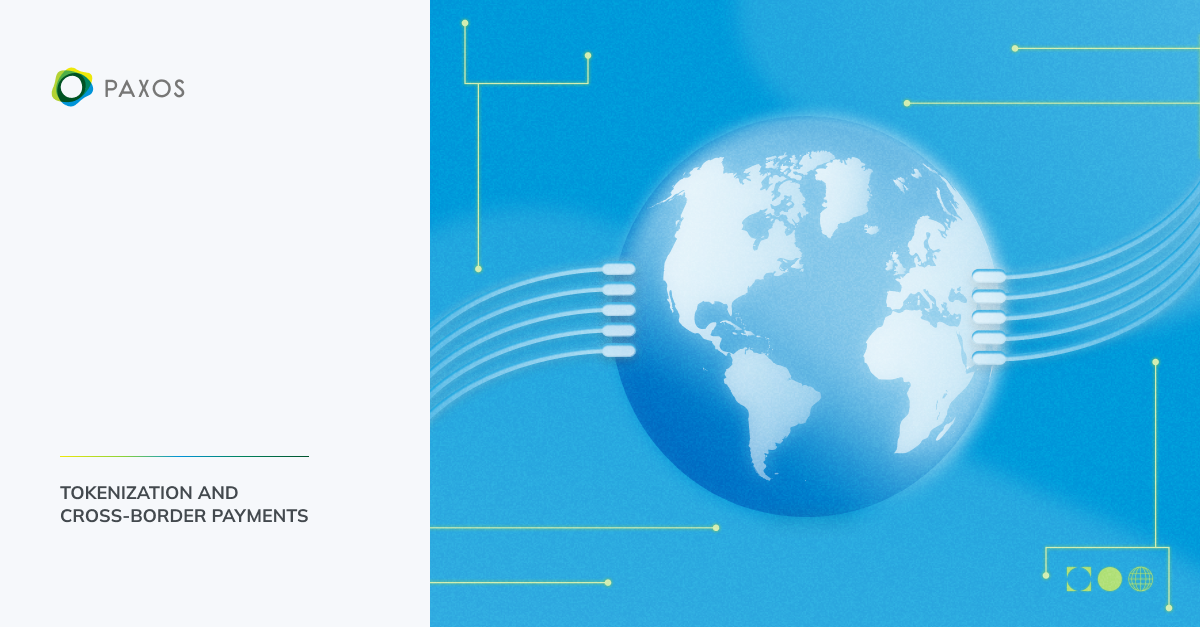
Cross-border payments, or currency transactions between people and businesses from different countries, are ripe for innovation. They play a significant role in the global economy, growing across all use cases, with estimates putting their value at almost $150 trillion in 2017 and some seeing this total increasing to $250 trillion by 2027. In addition, user pain points are numerous, including high fees, long settlement periods and a lack of access, to name just a few.
Due to these issues and others, the utilization of tokenization in cross-border payments and global commerce is an increasingly relevant topic. Tokenization can revolutionize cross-border transactions in making them more efficient, secure and affordable.
Though the tokenization of cross-border payments may uncover new challenges, the potential for tokenization to solve current challenges in handling cross-border payments makes for a strong case.
Estimates put the value of cross-border payments at almost $150 trillion in 2017 and some see this total increasing to $250 trillion by 2027
Standardization and interoperability
The cross-border payments landscape is increasingly complex and dynamic, with various challenges stemming from the need for more standardization in the processing of transactions. A lack of standardization is problematic for businesses operating in multiple countries, as they must contend with variations in banking systems, regulations, and currencies that can impede the acceptance of customer payments in other countries.
The need for a universal language for transactions, which can be comprehended and processed by different systems and regulations, has become paramount in facilitating the seamless execution of cross-border payments. Tokenization can provide a standardized framework of definitions for cross-border payments by converting sensitive data into unique digital tokens that can be securely and efficiently transmitted across borders. This process not only enhances the security of the transaction but also enables the transmission of data across borders without the need for complex procedures. These tokens can then be easily integrated into existing payment systems, regardless of their location or regulatory environment.
Fraud prevention
The tokenization process can be a crucial mechanism for enhancing the security of cross-border transactions. By replacing sensitive information with a token, the technology effectively obstructs the ability of malicious actors to access and exploit such information for illegal activities. This mitigates the risk of fraud in cross-border payments and significantly reduces costs associated with fraud prevention strategies.
Using tokenization in cross-border transactions is a highly effective means of safeguarding sensitive information and protecting against fraudulent activities, which costs banks $15-20 billion annually by some estimates. The token is a surrogate for sensitive information, rendering it unreadable and inaccessible to unauthorized parties, making it useless to cyber criminals.
Chargebacks are among the costly consequences of fraudulent activities, and tokenization can greatly reduce their occurrence. This can result in a reduction in the costs associated with fraud prevention, as well as a more efficient and secure cross-border payment system.
Tokenization is a scalable security solution that can be integrated into existing systems and does not require significant changes to an organization’s infrastructure, making it an attractive option for organizations looking to enhance the security of their cross-border transactions without incurring high costs or disruptions to their operations.
Tokens are a surrogate for sensitive information, rendering them inaccessible to unauthorized parties and useless to cyber criminals
Micropayments
Tokenization in global commerce presents many opportunities, including the capability to facilitate micropayments. The utilization of traditional payment methods, such as credit cards and bank transfers, has been hindered by the high fees and unfriendly user experiences associated with processing small transactions. Fees can deter consumers and merchants alike, particularly in the digital realm, where the value of individual transactions may be low.
Tokenization presents a potential solution to this challenge by creating tokens specifically designed for small transactions. These tokens could be utilized to purchase digital content, such as music, videos or e-books, thus expanding the range of consumer payment options and increasing accessibility to digital goods and services.
Tokenization can also enable micropayments in the Internet of Things (IoT) context. IoT devices like smart homes and wearable technology will likely become more prevalent. These devices often require small payments to access services or unlock additional functionality.
Decentralized transactions: no need for intermediaries
The tokenization process facilitates the digitization of assets and opens the door for decentralized, cross-border transactions by implementing decentralized finance (DeFi) protocols, blockchain technology and smart contracts. This approach allows for peer-to-peer transactions, eliminating the need for intermediaries associated with traditional finance (TradFi).
Using tokenization in conjunction with DeFi protocols and smart contracts can reduce transaction costs and likely increase accessibility to financial services. This is particularly important for individuals and businesses in developing countries with limited access to traditional financial services.
Remittances and financial inclusion
Tokenization holds the potential to transform cross-border payments and global commerce through the utilization of blockchain technology. Implementing tokenization allows for the secure, efficient and decentralized transfer and trade of assets, which profoundly impacts both individuals and businesses, particularly in regions where access to traditional financial banking methods is limited.
Financial inclusion remains a persistent issue in many countries. A sizable population in these nations may often be excluded from the global economy due to the need for more access to banking services and traditional financial infrastructure. Reasons for this vary greatly, from the geographical challenges of living in rural areas to a general lack of trust in banks among some consumers. Tokenization presents a viable solution to this problem by allowing individuals to securely, transparently and easily send and receive payments using digital tokens.
Traditional remittance methods are often costly and time-consuming. Tokenization can mitigate these issues by allowing for the instantaneous and low-cost transfer of funds, benefitting the recipients and stimulating economic growth in developing regions through increased access to stable capital such as $USD.
Tokenization presents a viable solution to financial inclusion in regions where access to banking is limited
Beyond cross-border payments
The benefits of tokenization extend beyond cross-border payments, as it can also be applied to other areas such as e-commerce, mobile payments, and online banking. Tokenization can enable businesses to expand their reach and increase their revenues by providing a secure and efficient way to accept customer payments in different countries.
The big picture is that tokenization offers many advantages that can facilitate cross-border payments and promote global commerce through standardization, fraud prevention, micropayments and decentralized transactions.
As the financial technology landscape evolves, many see tokenization becoming increasingly vital in ensuring the security and efficiency of cross-border transactions. Additionally, tokenization can open up new innovation opportunities in the financial industry, allowing for more inclusive and accessible financial services. Though much of this is seen as taking place in the future, stakeholders need to stay informed as decisions and developments in tokenization happening today will impact the financial system of tomorrow.
Want to learn more about tokenization and how it can help transform the future of financial markets?

